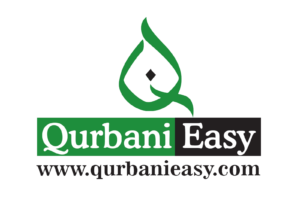

Islam views sacrifice primarily as an act of obedience and dedication to Allah. This is especially true of the Qurbani ceremony performed at Eid al-Adha. For those who can afford it, it is a mandatory or highly encouraged activity throughout the designated period of Eid al-Adha and represents submission to Allah’s will.
In addition to this required practice, some Muslims believe that Sadqah Sacrifice, a voluntary sacrifice should be made, typically during difficult or unwell times or as part of a promise (nadhr). For example, in order to express gratitude (shukr) to Allah for their healing, a person may promise to sacrifice an animal.
Islam defines a promise, or nadhr, as a serious commitment one makes to Allah, promising to carry out a particular deed in the event that something specific occurs. Vows frequently include helping others, acts of prayer, or sacrifice. The Qur’an and Hadith highlight the importance of vows and encourage Muslims who make them to keep their promises to Allah.
“Then let them complete the rites prescribed for them, fulfil their vows, and circumambulator the Ancient House.” (Surah Al-Hajj, 22:29)
Similarly, in another verse, Allah mentions the righteous people who fulfil their vows: “They [the righteous] fulfill their vows and fear a Day whose evil will be widespread.” (Surah Al-Insan, 76:7)
These verses show that, provided the commitment is made in conformity with Islamic principles, keeping one’s word is recommended in Islam. If someone makes a commitment to make a sacrifice in order to thank Allah for curing them from a disease or for any other favour, they must carry out their promise as soon as the wish they prayed for comes true.
While voluntary sacrifice is permissible, there are some important conditions attached to this practice:
1. Purpose (Niyyah): The sacrifice ought to be made with a true purpose of obtaining Allah’s pleasure. It must not be connected to superstition in any form or to any belief system other than Allah’s will. The sacrifice must be made with the express purpose of thanking Allah or keeping an oath to Him.
2. Criteria for the Animal: The sacrificial animal must fulfill specific requirements, just like the Eid Qurbani. The animal needs to be the proper age, in good health, and devoid of flaws. Islamic law typically allows for the sacrifice of sheep, goats, buffalo, and camels. In other words, providing that the goat satisfies all Islamic criteria for a legitimate sacrifice, offering it as a sacrifice for the purpose of curing a disease would be acceptable.
3. Distribution of Meat: The needy and impoverished should preferably receive the meat from the sacrifice. Sharing the majority of the meat with others, especially the less fortunate, is strongly recommended. However, in certain instances, the person performing the sacrifice may save a portion for their household. This charitable deed is a crucial component of the sacrifice, highlighting the caring and giving nature of Islam.
Offering a sacrifice for the purpose of healing from disease is acceptable from an Islamic standpoint, however it is classified as a vow (nadhr) as opposed to the required Qurbani of Eid. According to scholars from different Islamic schools of thought, this kind of voluntary sacrifice is permissible as long as it is in line with Islam’s teachings.
It is believed that the Prophet Muhammad (peace be upon him) personally offered sacrifices for a variety of reasons, most of which had nothing to do with health, on occasions other than Eid. “Sadaqah sacrifices” are voluntary offerings made outside of Eid that are regarded as acts of devotion and kindness.
It is important to make clear, though, that making a sacrifice for one’s health ought not to be seen as a transactional act in which one expects instant benefits only for making the sacrifice. Offering a sacrifice is a way to ask Allah for blessings and to demonstrate your devotion to Him, but Allah alone has the final say over whether or not you will be recovered of your ailment.
There are several hadiths that encourage Muslims to offer voluntary sacrifices as acts of charity. The Prophet Muhammad (peace be upon him) emphasized the importance of giving charity (sadaqah), which can include sacrificing animals and distributing the meat to those in need. For example, it is reported that:
“The Messenger of Allah said, ‘Give charity without delay, for it stands in the way of calamity.’” (Tirmidhi) According to this hadith, performing deeds of charity, such as offering up yourself voluntarily in order to avoid tragedy, may also increase one’s likelihood of getting Allah’s mercy and benefits, which may include healing from disease. These hadiths have been interpreted by numerous Islamic scholars to support the legitimacy of voluntary sacrifices for a range of purposes, including protection and well-being.
Scholars further stress that the act of offering must not be confused with the superstitious belief that the offering itself has healing properties. Instead, the offering serves as a means of requesting Allah’s mercy and becoming closer to Him while realizing that He alone possesses the ability to heal.
In conclusion, sacrificing a goat outside of Eid al-Adha is acceptable in Islam, particularly if done as a promise or an expression of gratitude to Allah for healing from a disease. When carried out properly and in accordance with Islamic law, this type of voluntary sacrifice may be an acceptable way of requesting Allah’s favor. It is crucial to stress that these customs should have their foundation in Islamic teachings and should not be associated with superstition or the idea that the action itself—rather than Allah’s mercy—is what causes healing.
Furthermore, the distribution of meat to the underprivileged continues to be a fundamental part of this ritual, and the sacrifice should be understood as an act of worship and charitable giving. Ultimately, even if making a sacrifice may be a part of a person’s prayer for health and prosperity, Allah ultimately decides what happens; therefore the one making the sacrifice should have complete faith in His divine knowledge and compassion.